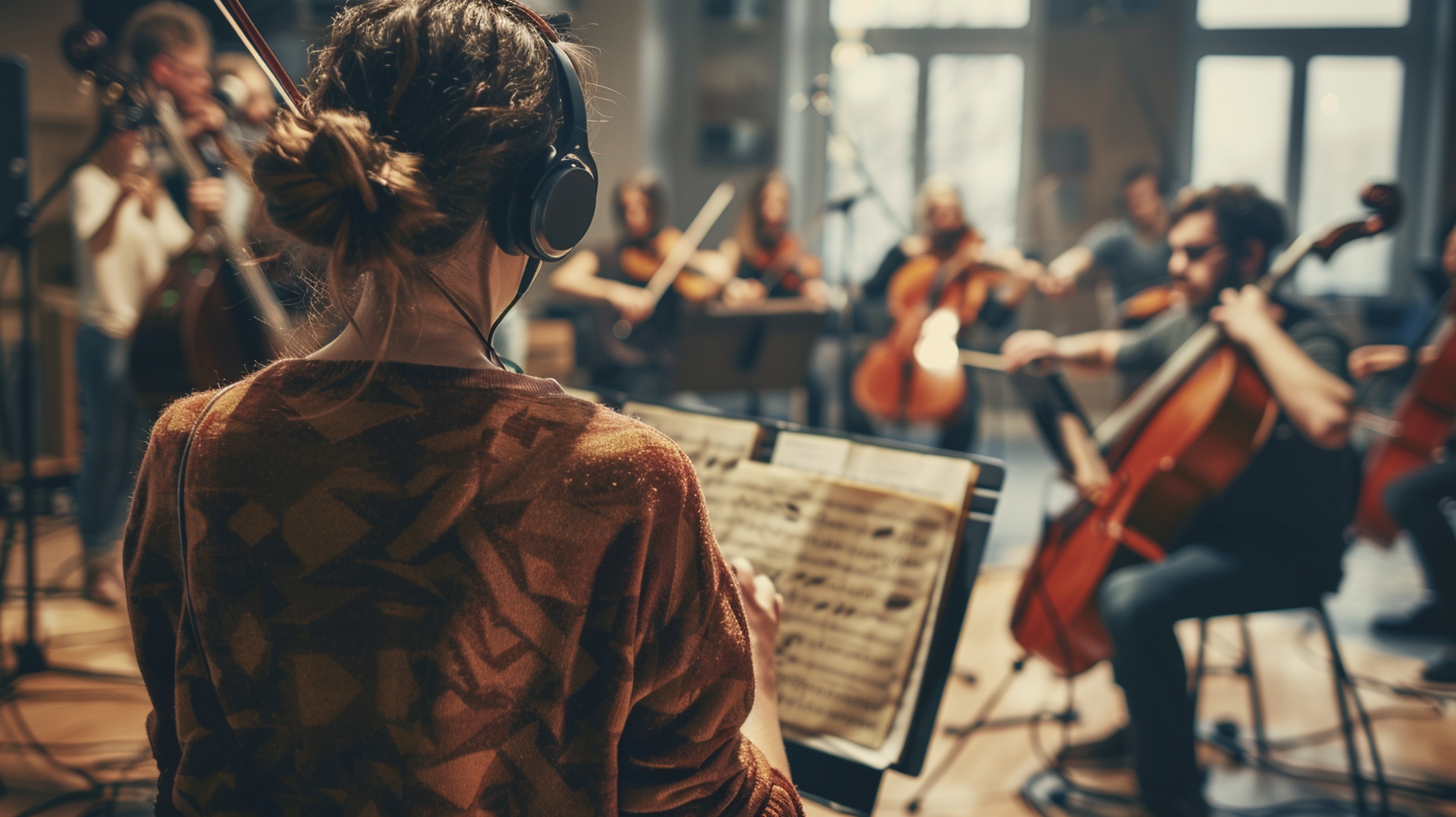
I have just returned from SoundTrack Cologne, an annual conference on music for film and games, where I was invited to speak. It was great to meet so many creative and welcoming people, and to gain more insight into the process of composing music for games (which is pretty impressive when a real orchestra is involved).
For most games, music is as important to success as story and gameplay. It is also a large part of the budget. For some games, this can be in the seven-figure range. I took the opportunity to attend a panel with Austin Wintory, who shared insights into his work. I especially love his soundtracks for the games Journey and Abzû. It takes extraordinary talent to create the vulnerable melodic richness of Abzû. Not the usual orchestral bombast we hear in so many other games. Here's a great analysis of his main themes (that channel is also a rich source of inspiration).
It became clear from the presentations and discussions at AI MusicCon that AI is perceived as a threat to the industry as a whole, not only economically but also culturally. Music as a form of human communication is about to be overwhelmed and diluted by a flood of faceless clones and generic variations aggressively distributed by growth hackers looking for a quick buck.
I fundamentally share this concern, especially when AI attempts to generate complete works at the expense of the artists and producers whose work has been misused en masse (and unsolicited) to train these models. However, I also see great potential for the use of neural AI in audio processing and sound synthesis, which is still underutilized.
In my presentation, I showed what types of AI there are, what they can (and cannot) do and where humans do not (yet) have to fear competition with machines. I pointed out some very high barriers neural AI needs to pass in order to be able to compose music (almost) like a human and I explained why I don't expect this to happen anytime soon.
One of my main arguments was that the amount of potentially possible music is so astronomically large that it cannot be meaningfully navigated with a few prompts or parameters. Only a human individual with their subjective view, their preferences, their objectives and spontaneous inspirations can steer towards a destination that is not completely random (and therefore meaningless).
I presented Synfire as a tool that uses analytical and generative symbolic AI for specific tasks only, but leaves the creative decisions of composing a piece of music to the user.
This was very well received by the audience.
In the panel discussion that followed, I was introduced as the optimist in the group, because my expectation is that AI start-ups will eventually run out of money because their lack of a sustainable business model. I may be wrong. We will see.
I was grateful for the opportunity to contribute my perspective to the current debate and to briefly introduce Synfire to a new group of interested parties.

Comments
Tue, 2024-07-09 - 13:53 Permalink
Congratulations on your invitation to speak and your very positive experience. Thanks for sharing this with us. (I'm listening to the ABZU score now.)
Wed, 2024-07-10 - 13:14 Permalink
Nice!!
Sun, 2024-08-11 - 11:42 Permalink
Thanks for sharing your experience at this conference, and your view on AI music.
I agree: I also tend to believe that AI music is not going to be thread any time soon to the professional composer of film and game music, where some highly bespoke solution is sought for. What I do believe, though, is that AI music is a direct thread to the existing catalogs of production music (stock music or library music) used for low budget TV shows and the like. This business has been a two-tier world before, and I expect AI music will in terms of business mainly impact one of these two tiers.
On the other hand, for those composing just for fun, whether or not this new development impacts you is your own choice effectively.
I expect that in the medium term AI music will result in its own artistic branch.
With a grain of salt, we can perhaps compare this situation to the advent of photography. While painting as an art form still exists, the mass-produced market of painting has been taken over by photography. Besides, photography is now an art form in itself.
Wed, 2024-09-11 - 08:35 Permalink
Good to see SoundTrack Cologne was a great success for you.
Is there a video or a transcript of your speech at the convention available on the net?
Sat, 2025-02-15 - 02:03 Permalink
Glad to hear it was a good opportunity for others to see the value of Synfire and Cognitone products!